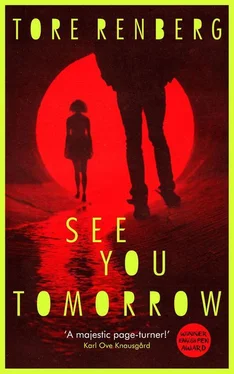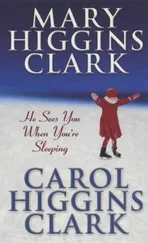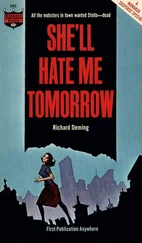They were disturbing, compelling stories. Jan Inge was struck by the magnificence of The Good Book, how rewarding it always was to peruse it, equally as gratifying as watching a horror film, and for the same reason, because they both spoke about truth, about goodness, about how after one blow it’s all too late; and didn’t both of them speak of change? As disturbing and captivating as the stories might be, and as much about truth and change as they may be, neither the one about Moses, nor the one about Saul nor the one about Nathan, David and Bathsheba could be used this Sunday. On the whole, the task — finding an appropriate eulogy for Tong — presented problems. It seemed almost like The Good Book didn’t have anything to say about one such as Tong, had no words to sum up his life and act as encouragement in the wake of what had happened on Thursday. Jan Inge turned page after page while Hank Williams sang about loneliness, while the clock ticked on past nine, around to ten and then half past ten, but no stories and no quotations with the right wording or content seemed to stand out. He sat enthralled in the wheelchair for a long time by the words of Job, who can bring what is pure from the impure , but to use a quote like that, which would obviously be directed towards Cecilie’s child and the question of whether it was Tong’s, would be pure madness. Job’s words about there being hope for the tree, because it can grow again after being cut down, while all hope is lost for the dead man because he will not, also seemed too harsh for such an occasion.
Weary of reading the gauzy pages, Jan Inge put the book in his lap and tried instead to listen to the sound of his own heartbeat.
He had often felt the pace begin to slow after a while.
Thump-thump, thump-thump.
It was not something he took lightly.
To close one’s eyes, lean back, listen to one’s own heart and interpret one’s own inner voice: he had frequently found this to be the path to solving many problems.
The first problem it cleared up, quite literally, was the weather outside. After a few minutes in the wheelchair with The Good Book in his lap, it stopped raining. Jan Inge noticed the changes in the sound around him, the rustle of the rain suddenly gone.
Thump-thump, thump-thump.
Again he shut his eyes so he could listen to his own heart and decipher his inner voice.
Thump-thump, thump-thump.
He tried to keep his eyelids at rest, which he often found difficult, as they had a tendency to quiver faintly on his eyeballs, and he listened as intently as he could.
Cold, cold heart , Hank Williams sang.
Jan Inge opened his eyes. He got up out of the wheelchair. He paced up and down the living room a number of times shaking his head. Hank sang about a woman with a cold heart, and it was a long way from a love song about a cold woman to the story of Tong, but still. Jan Inge’s heart began to pound as the felt the truth foray forward: the story of Tong wasn’t a story of warmth. The story of Tong wasn’t the story of a good person. It was — and at this point Jan Inge was contrite for having such terrible thoughts — the story of a cold heart.
And it has to be said, he hurried to add, that there can be many reasons for a person to have a cold heart.
But there they were. There were the words his own heart had tried to communicate to him. Thump-thump, thump-thump.
The various parts of the breakfast Jan Inge had prepared several hours earlier had either begun to dry up, melt or go stale, so he went into the kitchen to make another at the same time as he decided that since it seemed like Cecilie and Rudi were going to sleep the whole day through, he would have to wake them. He cut some fresh slices of bread, he put on fresh coffee and brewed a little tea, threw out the tomatoes and cucumber slices he had put out some hours before, cut up a few new ones as well as some fresh cheese so everything appeared more pleasing. He read a few pages of the Saturday edition of Stavanger Aftenblad , which had lain unopened all of yesterday, running his eyes over a piece about a serious assault and robbery in Madla, taking note of the fact that the police were without any leads, and as he perused an article concerning a girl (15) who had died in the early hours of Saturday morning as a result of injuries sustained from being hit by a moped, he reflected on how sad it was when people died so young.
Then he went into the hallway and walked to their door. He put his ear against it. There was the sound of whispering within. He held his breath and tried to listen, but it was impossible to hear what they were saying, so he gave up, took a few steps backwards and mustering as much energy in his voice as he could, called out: ‘Breakfast!’
Dressed in boiler suits and accompanied by the peal of a church bell in the distance, with minds set firmly on the future, Rudi and Jan Inge carried the carpet with Tong inside up from the basement after breakfast, which Rudi had praised as being fit for a king. Cecilie walked in front, making sure they did not trip on the ends of the rolled-up carpet which brushed each step, and they managed to manoeuvre Tong’s body up the narrow, steep staircase that had not been built with that kind of thing in mind back in 1972 when Thor B. Haraldsen and Veslemøy Sivertsen hung up a sign beside the front door which read ‘Welcome to Veslemøy, Thor, Jan Inge and Cecilie’.
There’ll be many more breakfasts like that, Jan Inge pointed out, in his most optimistic tone of voice, while at the same time being conscious of sweating like a pig from actual manual labour, many more breakfasts, yes indeed, when there’re four of us living in the house. He hoped for a response to confirm that there actually would be four of them living in the house , but it was not forthcoming and he thought about how there is a time for everything, and now was the time for work, not confrontation. Show, don’t tell , as they say in the world of the scriptwriter, a term they’d had a good laugh about once when it turned out that Rudi had misunderstood and presumed it meant to put on a real show as opposed to talking. In spite of his error, Rudi still maintained that the two could often be one and the same, because as he said, what could make for a better show than a good talk?
They stowed Tong and his carpet beneath the curtains by the door to the veranda and went to fetch all they could scrape together of picks, hoes and digging equipment, because it was a deep hole that needed to be dug. None of them had any expertise in the area, but Jan Inge knew this much; if you were going to bury a person in your garden — a comrade with a cold heart — you needed to put him a long way down. That much was obvious. That body, it would have to be laid far below. In a garden a child would soon be running around playing. A garden that would soon be fixed up and made neat and tidy, a garden that would be used in the future. The mere thought of Tong lying just beneath the soil while they played croquet for example, or barbecued pork chops made him feel unwell.
But there was little to bring croquet or pork chops to mind for the time being. The old mattresses Mum, poor cow, had dozed on before she died, lay there, bearing little resemblance to mattresses any more, as well as the two wheelbarrows, riddled with rust, from when Mum and Dad worked in the garden, from when Dad had plans for the house. Some hubcaps and tyres lay over in the east corner, along with the remnants of some car parts they had stolen from a parking lot in Forus around the turn of the millennium, so worn and in such bad condition that not even Buonanotte could offer anything for them, while in the west corner a load of planks lay rotting from the time Rudi got it into his head to extend the veranda; nothing ever came of it, but who knows what might happen now. The broken lawnmower was just as rusted as the wheelbarrows, and Cecilie’s old Raleigh bicycle equally so, all of them strewn like dead tin soldiers against the west side of the hedge, not far from Mum’s washing machine, which she never used, old witch, and the sofa from the den. It’s seen its fair share of video films, that sofa, Jan Inge said, from the time it was new and red and bought at a flea market in Kannik School. And then there was all that assorted junk, broken tools and equipment, the smashed TV Jan Inge used to have in his room together with the VCR, which also lay there as a reminder of the old, difficult days, as did the three panel heaters Dad bought before he left, but why there were eight mouldy pallets at the end of the garden was something Jan Inge could no longer recall, nor what the broken shears had to do with anything, nor the door handle, but the rusty rotary clothes line, that awoke strong memories, and was in many ways the most acute image of his childhood, because when he was small it always put him in mind of an umbrella, and he always thought about lifting it up in his little hand against the rain.
Читать дальше












